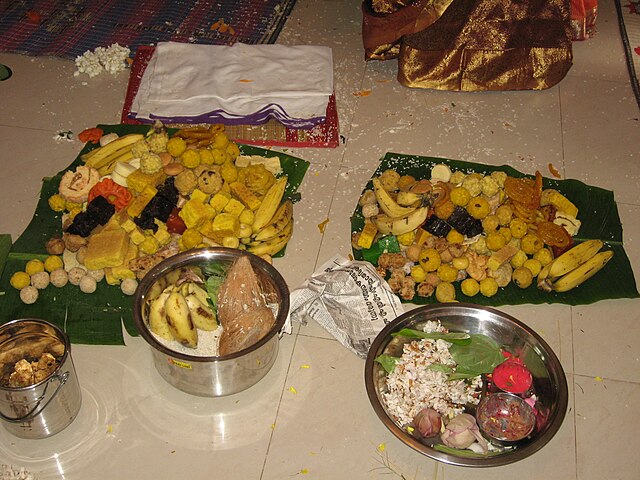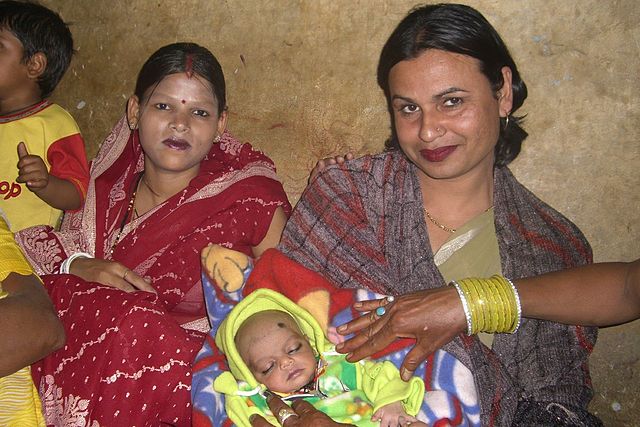Pumsavana is the second of the 16 saṃskāras in ancient texts of Hinduism. The rite of passage is celebrated in the third or fourth month of pregnancy, typically after the pregnancy begins to show but before the baby begins to move in the womb.
Different varieties of sweets served on a Pumsavana function in Kerala.
Samskara (rite of passage)
Samskara are sacraments in Hinduism and other Indian religions, described in ancient Sanskrit texts, as well as a concept in the karma theory of Indian philosophies. The word literally means "putting together, making perfect, getting ready, to prepare", or "a sacred or sanctifying ceremony" in ancient Sanskrit and Pali texts of India.
Samskaras are, in one context, the diverse rites of passage of a human being from conception to cremation, signifying milestones in an individual's journey of life in Hinduism. Above is annaprashana samskara celebrating a baby's first taste of solid food.
A new born's Namakarana ceremony. The grandmother is whispering the name into the baby's ear, while friends and family watch.
Annaprashanam is the rite of passage where the baby is fed solid food for the first time. The ritual has regional names, such as Choroonu in Kerala.
A baby's first haircut is called choulam samskara.





